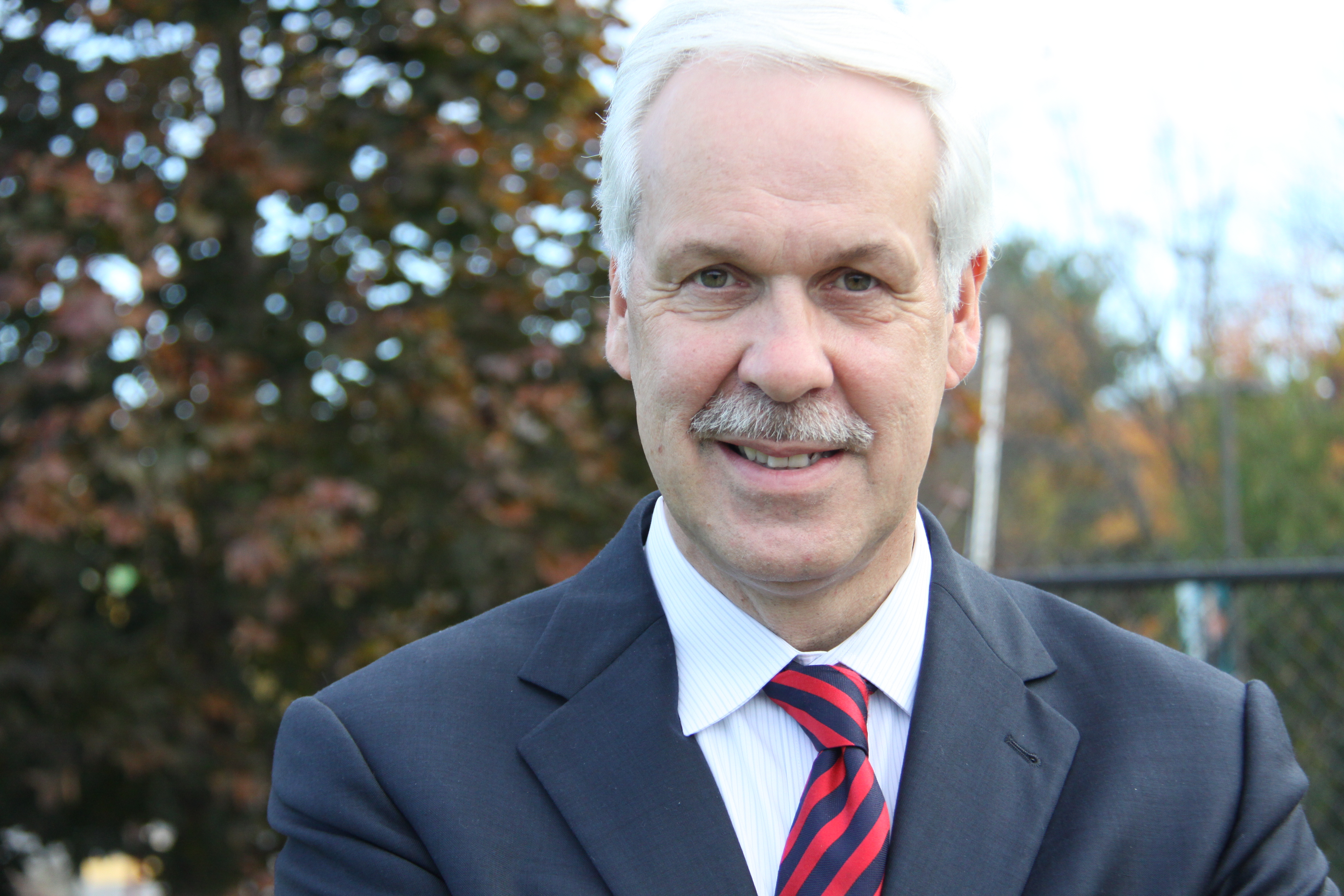
Southern New Hampshire University President Paul LeBlanc says institutes of higher learning should focus on competencies rather than credits in awarding degrees.
America’s universities are still held in high regard, but doubts persist about the system’s ability to prepare students for success in today’s fast-changing, knowledge-based economy.
The number of college graduates is climbing but too slowly to meet the country's economic needs, according to economists. That's why some innovators want to fundamentally change the way institutes of higher learning award college credit.
Robert Freese runs a manufacturing company in Pittsfield, New Hampshire. His business, Globe Manufacturing, makes highly-customized clothing for firefighters in more than 80 countries. This shop floor looks very different than when his grandfather founded Globe Manufacturing 126 years ago.
“It’s not like the old sewing machines and machinery of yore," he said. "It requires a different employee than what we’ve traditionally hired into the factory.”
In one corner of the shop floor, workers pull heavy fabric- about eight feet at a time- onto a computer-operated cutting surface. Then they cut all the parts that make up firefighters’ clothing. Freese said assembling this gear is no longer a modest job.
“A high school education was probably pretty adequate. Today we’ve got automated cutting machines over here that are a quarter million dollars a piece and need people that can run those.”
Freese said he has struggled to find workers who can both run these complex machines and think critically, and he isn’t alone, according to MIT professor Suzanne Berger.
“These are production capabilities that are going to be very different than those in this country even ten years ago, so they’re going to take skills that we’re not necessarily educating people for now," Berger said.
Berger interviewed CEOs of more than 250 advanced manufacturing companies who say they can’t find people with the right skills because colleges aren’t providing proper training. And that has led some to seek a new, student-centered approach.
At Southern New Hampshire University in Manchester, president Paul LeBlanc talks about the school's College for America, which gives college credit for what students learn and do, rather than time spent in the classroom. LeBlanc said colleges and universities should focus on competencies rather than credits.
“For hundreds of years, higher education has been based on a bunch of inputs – how many PhDs on your faculty? How big is your library? How grand are your buildings? And with competency-based education, what we say is, ‘If you can demonstrate your results, if you can demonstrate the claims you make for learning, then we care a lot less about how you got people there. And that opens up a world of new delivery models,” LeBlanc said.
SNHU recently became the first college eligible to receive federal aid for a program not based on the credit hour – or how much time you spend in the classroom but on taking an online test to prove your mastery of 120 specific competencies, such as using logic, reasoning and analysis to address a business problem.
“I think that there are many kinds of higher education, and the four year traditional, coming-of-age campus like the one we’re standing on today won’t go away, because it solves a different problem," LeBlanc said. "But a focus on learning outcomes will permeate higher education in the future.”
Listen to Kirk's extended interview with Paul LeBlanc about SNHU's new competency-based degree:
For Tammy Bosquet, competency-based learning is allowing her to earn a college degree. Bosquet works behind the scenes at Globe Manufacturing in Pittsfield. Twenty-two years ago, the human resources administrator dropped out of college to raise her family.
“I told my children the one thing I always wanted to do was to get my degree,” she said.
This summer, Bosquet enrolled in SNHU’s online, self-paced associate degree program. She will earn her degree after she proves she can write critically, create a business plan and use certain computer software. Her goal is to gain self-confidence and skills to get ahead.
She’s already noticed a difference.
“I was really kind of reserved in thinking that I couldn’t do, and I’ve learned that I can do,” she said.
With no due dates, students are encouraged to stick to a schedule. The College's first graduate, a sanitation worker in Ohio, completed his degree in three months while working a full-time job. Still, Bosquet admitted it may not be for everybody.
“You have to set your own goals," she said. "And if you’re not self-motivated, you’re not going to keep going.”
Today, SNHU has about 500 students like Bosquet- and that number is growing as the college partners with employers. But it’s also gaining skeptics who say the competency-based model could undermine more in depth learning.
As the president of the Association of American Colleges and Universities, Carol Schneider has helped to develop degree qualifications at more than 300 schools for what students should know and be able to do. She said she thinks SNHU’s competency-based model won’t replace the current higher education system any time soon.
“It’s very innovative. The question is: Is it scalable," Schneider asked. “It is still a very small program with big ambitious ideas, but it has a long way to go before it can demonstrate that it can provide a meaningful alternative to the existing business model of higher education.”
That’s not stopping SNHU, which has plans to expand its College for America to 350,000 students in the next five years.
Until then, it’s still unclear whether self-directed, online learning will develop the kind of high-level adaptive skills that today’s workforce requires and rewards.
WGBH News' On Campus reports are a collaboration with The Forum for the Future of Higher Education and made possible with support from Lumina Foundation.










